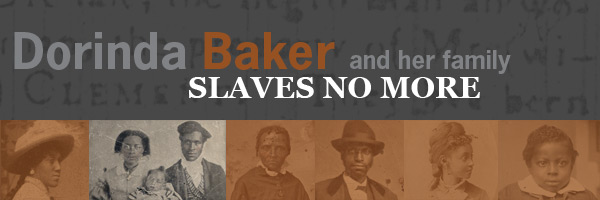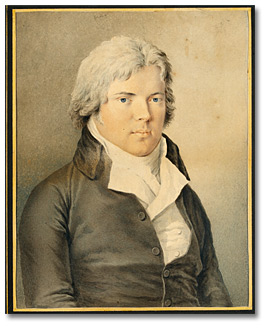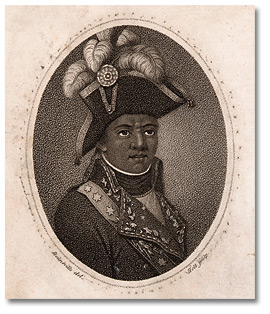
In 1804 , Dorinda Baker and her three children were the property of the Solicitor General of Upper Canada, Robert Gray.

Click to see a larger image (122K)
Robert Isaac Dey Gray
Watercolour by William Berczy
Royal Ontario Museum
©ROM, 970.85.2
![Photo: Unidentified Man, Woman and Child, [ca. 1875]](pics/24785_family_250.jpg)
Click to see a larger image (164K)
Unidentified Man, Woman and Child, [ca. 1875]
Alvin D. McCurdy fonds
Reference Code: F 2076-16-4-8
Archives of Ontario, I0024785
Dorinda seemed destined to be a slave until she died, and her children would have remained Gray's property until they turned 25. However in that year Robert Gray made a will, in which he released . . .
. . . on his death. He also left the Baker family money and property to ensure that they would be financially secure, and even purchased the freedom of Dorinda's mother Lavine, who was a slave in the United States commenting . . .
Robert I. D. Gray to Mrs. Valentine (his sister), 16 February 1804
Later that year, providence took another turn. Gray was drowned in a shipwreck and Dorinda and her family suddenly became free and prosperous.
July 9, 1793 Newark
The Upper Canada legislature passes the Slave Bill - "An Act to prevent the further introduction of slaves and to limit the Term of Contracts for Servitude within this province".
Although he would have preferred outright abolition, Lieutenant-Governor John Graves Simcoe makes compromises to satisfy the interests of fifteen members of the legislature who own slaves of belong to slave -owing families.
After proclamation of the Act . . .
- Slaves already in Upper Canada would remain the property of their owners for life.
- Children born to slaves were to be free at age 25.
- Children of children born to slaves were to be free at birth.
- No slaves could enter the province: any slaves brought into Upper Canada would be freed automatically.
- Owners of freed slaves had to provide for their security.
Robert Gray did more for his freed slaves than the law required whereas other slave owners found ways to keep their slaves dependent by employing them in renewable contracts.
From 1791 to 1803 General Toussaint L'Overture waged a successful rebellion in Haiti, freeing the slaves and establishing Haiti as the first independent Black nation in the Western Hemisphere. Partly because of the Haitian Revolution and slave revolts on other Caribbean islands, Britain passed the Act to Abolish the Slave Trade in 1807.
Dorinda Baker and Her Family: Slaves No More
Part of a wider movement to end slavery, this was the first piece of legislation passed in the British colonies to limit slavery. In 1833 Britain abolished slavery throughout the Empire. This law took effect on August 1, 1834, freeing the last remaining slaves in Upper Canada.
![Photo: Unidentified Group, [ca. 1875]](pics/28822_large_group_270.jpg)
Click to see a larger image (98K)
Unidentified Group, [ca. 1875]
Alvin D. McCurdy fonds
Reference Code: F 2076-16-5-3
Archives of Ontario, I0028822

